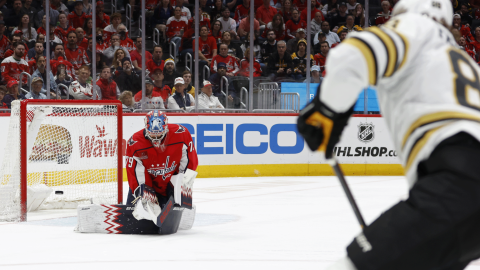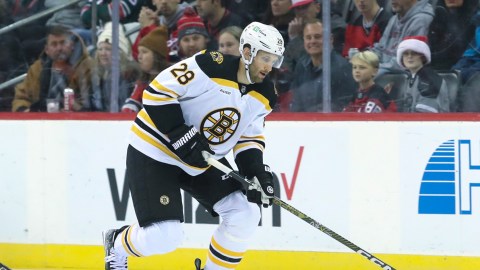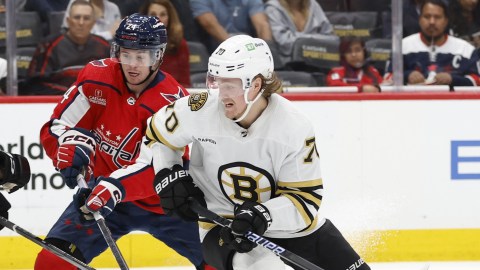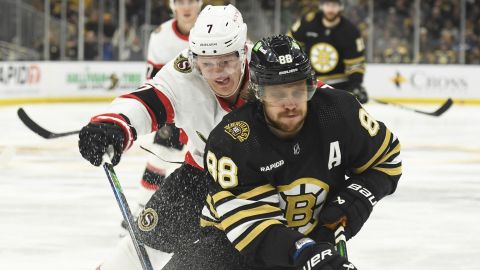 Bobby Orr wasn’t known as a fighter during his all too brief domination of the NHL. He was, however, unafraid to drop the gloves if need be.
Bobby Orr wasn’t known as a fighter during his all too brief domination of the NHL. He was, however, unafraid to drop the gloves if need be.
He also played on a team and in an era when players were willing and allowed to take care of problems with their own hands — usually quite literally.
While fighting is still a part of today’s game, there is certainly an anti-fighting movement that gains ground with every concussion or knockout punch landed on the ice. However, Orr believes there’s still a place for fighting in hockey. Arguably the greatest player of all time, Orr still keeps very close tabs on the way the game is played today. He knows there’s an anti-fighting groundswell, but if No. 4 had it his way, fighting would stay in hockey.
“I believe that especially at the pro level you need to be held accountable for your actions, and the threat of a fight can accomplish that,” Orr says in his upcoming book Orr: My Story, according to an excerpt published on The Globe and Mail website. “The truth is, you couldn’t pull the gloves off certain players if a fight was in their future, yet many of those same players in the modern game take liberties with others simply because they can. That is not right, and players should not be allowed to have it both ways. It leads me to the notion of what is commonly referred to as the ‘enforcer.'”
It must be said, though, that Orr isn’t a proponent of fighting in all of its forms. The Hall of Famer is against staged fighting and writes he’d even support a rule limiting the amount of fights per player, with supplemental discipline for anyone who surpasses that limit.
However, Orr feels there’s a place in the game for enforcers. He sees that very specific role as a vital piece of the puzzle and considers their actions important for ultimately keeping the game safer.
“Enforcers have a very practical role to play,” Orr wrote. “If the league really wants to see its stars shine, one of the best ways is to give them more time and space to be creative. And that is the enforcer’s job description.”
Orr sees the enforcer playing an important role in the hierarchy of hockey. There are the stars, who are what make the game go. But there are also agitators whose job it is to take the stars out of their game and sometimes crossing the line to do so. That’s where the enforcer steps in, Orr says, to police the game and keep things safe for the stars. Without enforcers, he believes, the agitators would be able to take greater liberties without consequence.
“In today’s game, the lines are blurred, the agitator turtles when justice comes calling, and suddenly the victim’s team is shorthanded and the agitator is on the bench laughing while his team goes on the power play,” he writes. “In other words, this arrangement rewards injustice.”
Officiating also plays a role. Orr would like to see some things let go, and he would like referees to have a better feel for the game. If you add all of it up, it makes the game better. Or so Orr thinks so.
“The creativity, the competitiveness, the physical battles, maybe even the fighting — that’s the game at its best,” he said. “We just have to get out of the way. While the game does change in small, unimportant ways, I’ve come to realize that no owner, no hockey executive, and no player is bigger than the game itself.”
You can read the rest of the excerpt — which is really worth the read — by clicking here.




